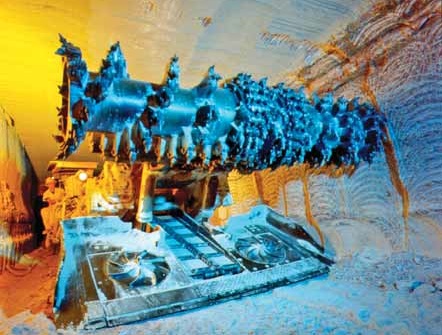If privatizing Indigenous lands is such a great idea, why the uproar over privatized PotashCorp?

Funny how being on the receiving end of a massive land grab can alter one’s perspective on what rules should apply to outsiders scooping up your territory and/or the resources beneath it.
Recent months have seen much discussion in favour of ‘privatizing’ First Nations lands. Communal or collective ownership, we are told, has been a lazy, corrupt monkey on the back of individual residents on reserve, preventing them from the full pursuit of economic liberty and prosperity. If only individual on-reserve Indians were freer to own and control their land privately, we are told, then they’d be able to burst forth and profit both themselves and, by extension, their communities.
This is far from a new idea: the only twist lately is that it now has forceful Indigenous advocates such as Calvin Helin and Manny Jules.
Not everyone agrees with the analyses of these individuals. There is a fear in some quarters that privatizing reserve lands could ultimately see those lands lost forever to the control of non-Aboriginal people or business. Proponents of privatization seem to believe this can’t happen under their ‘new-and-improved’ version of land laws on-reserve, but we’ve all heard that line before. Government and business have earned the collective mistrust of First Nations.
But, lo, witness the reaction when the moccasin is on the other foot.
A casual glance at Canadian media these days quickly reveals a near-furor in Saskatchewan over the possible fate of PotashCorp, “the world’s largest fertilizer company.” Today’s Globe and Mail reports that the Australian company BHP Billiton wants to buy PotashCorp for $38.6 billion. To do so, though, BHP must first “win Ottawa’s approval for its hostile takeover … despite massive political resistance to the foreign control of a strategic component of the global food chain.”
Interesting: when First Nations leaders express their “political resistance” to the potential increase in “foreign control” of lands due to privatization, their critics imply these leaders are reactionary, corrupt dinosaurs jealously guarding their turf. But when Premier Brad Wall argues “it is not to Canada’s benefit to cede control of a strategic resource to a multinational corporation whose interests may diverge from the people of Saskatchewan,” his views are allowed to pass without question by privatization’s proponents.
Given Canada’s atrocious track record in land dealings with Indigenous peoples, First Nations are utterly entitled to question what they fear is just the latest “hostile takeover” of what little territory they have left. Unable to take our lands outright, corporations and government may be taking a backdoor approach, one where some of the doormen now have brown faces.
[ Image of potash mine via womp-int.com ]


Most settler Canadians don’t understand or don’t accept that Aboriginal self-determination will mean ceding control of strategic resources – and that this is right and just.
But are you sure you’re not putting apples an oranges in the same basket? I don’t know anything about Brad Wall; is he a privatization advocate most of the time and being suddenly hypocritical here? I ask because I imagine that there is still a minority of Canadian politicians who oppose the privatizing trend of neoliberalism, and occasionally their voices cut through the din of the majority. Which doesn’t affect your larger point; I’m just wondering about the nuances.
If it’s okay for non-Indigenous peoples to own and control Indigenous lands, I don’t see why Canada should deny Australians the right to do the same with their lands. That is, if they want to stay consistent. That was my basic intent here in making the somewhat ham-fisted analogy. What’s good (or bad) for the goose is good (or bad) for the gander, that sort of thing.
Hear, hear!! Can Canada or any other nation be self-determining without a land base and resources to generate revenue to support its own governance? Of course not. Yet the federal and provincial crowns are attempting to transfer governance responsibility to First Nations through the BC Treaty process with insufficient transfer of lands, resource access and business jurisdiction so that the “self-determining First Nations will be able to generate revenue to support their independence. How are they supposed to support governance? Through continued revenue from the feds and province? That’s part of the process; there will be no further revenue from the feds and province and, even if there were, that wouldn’t be self-determination. Those that control the purse strings determine the course of action. The whole thing is engineered failure.